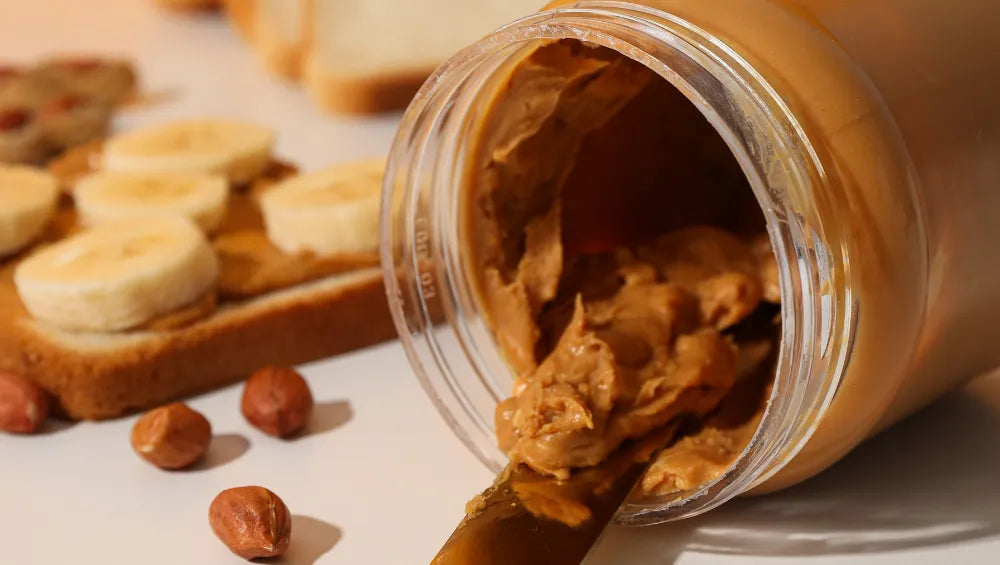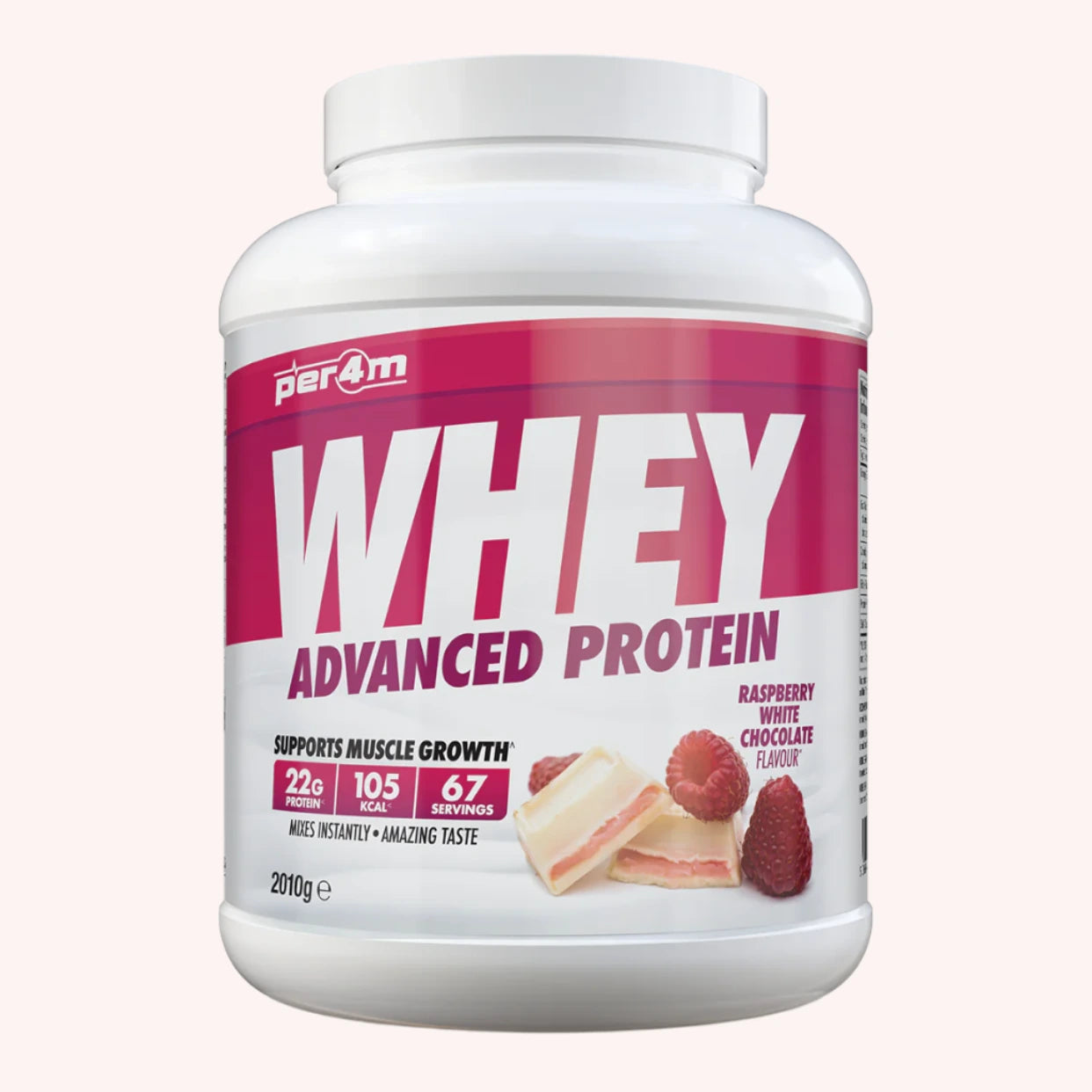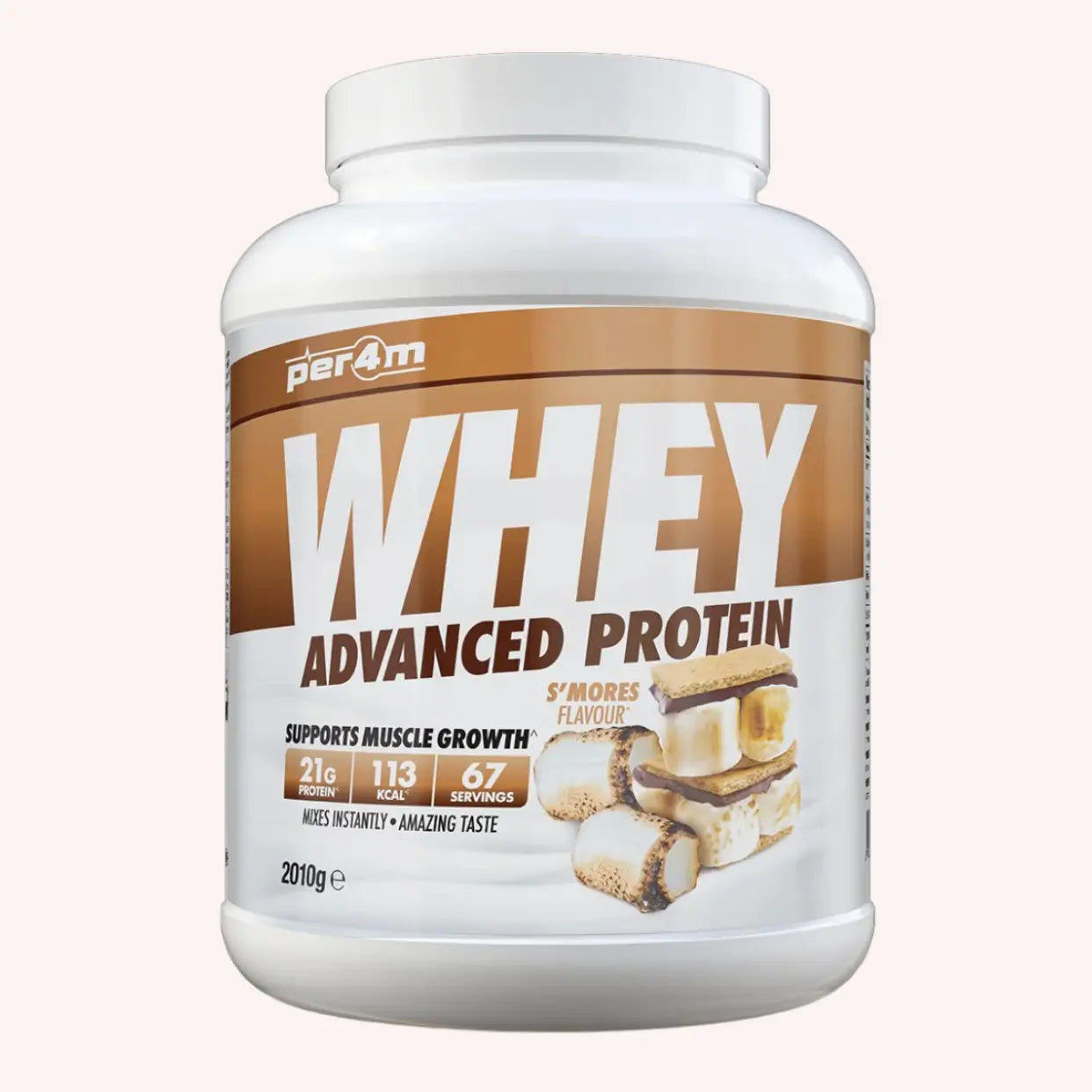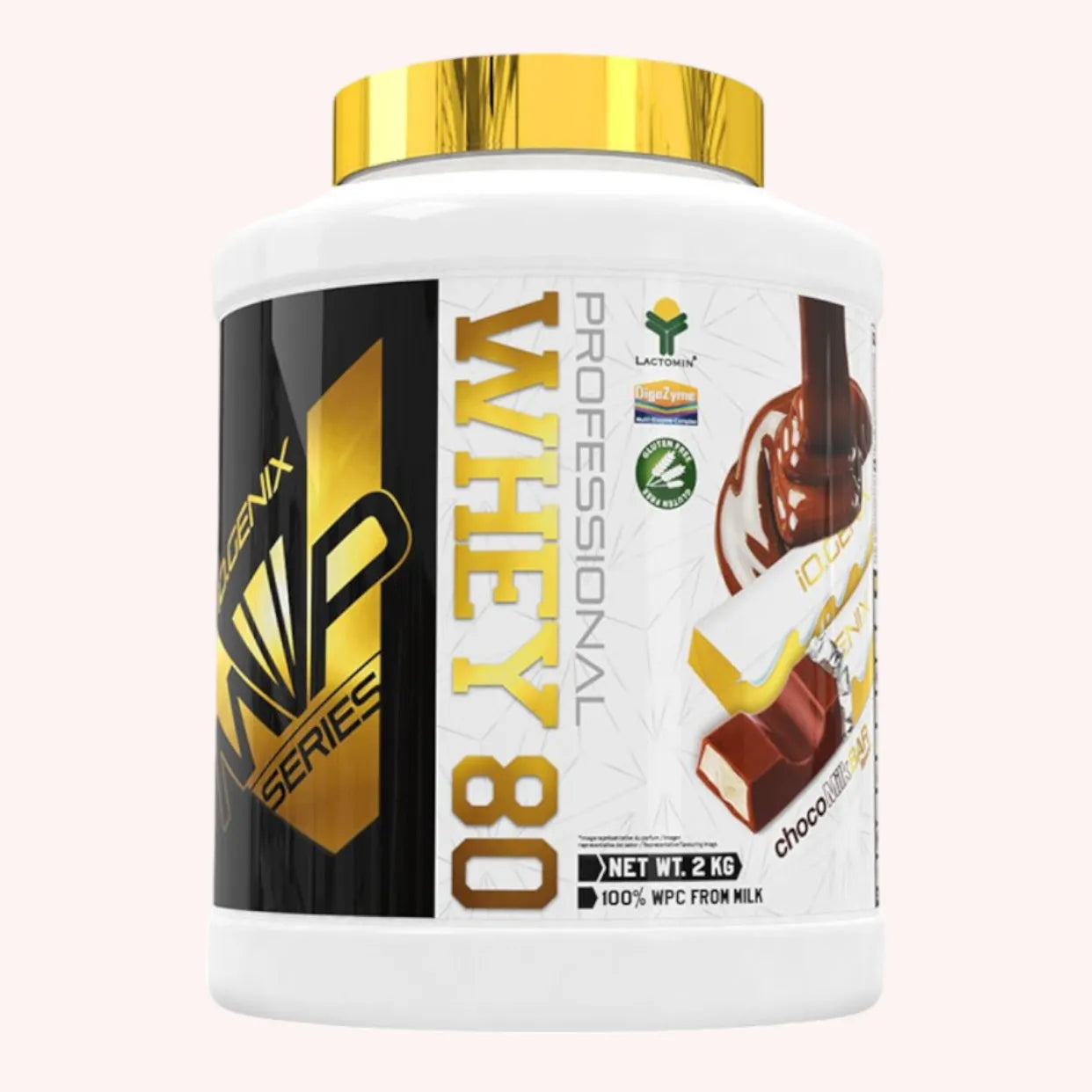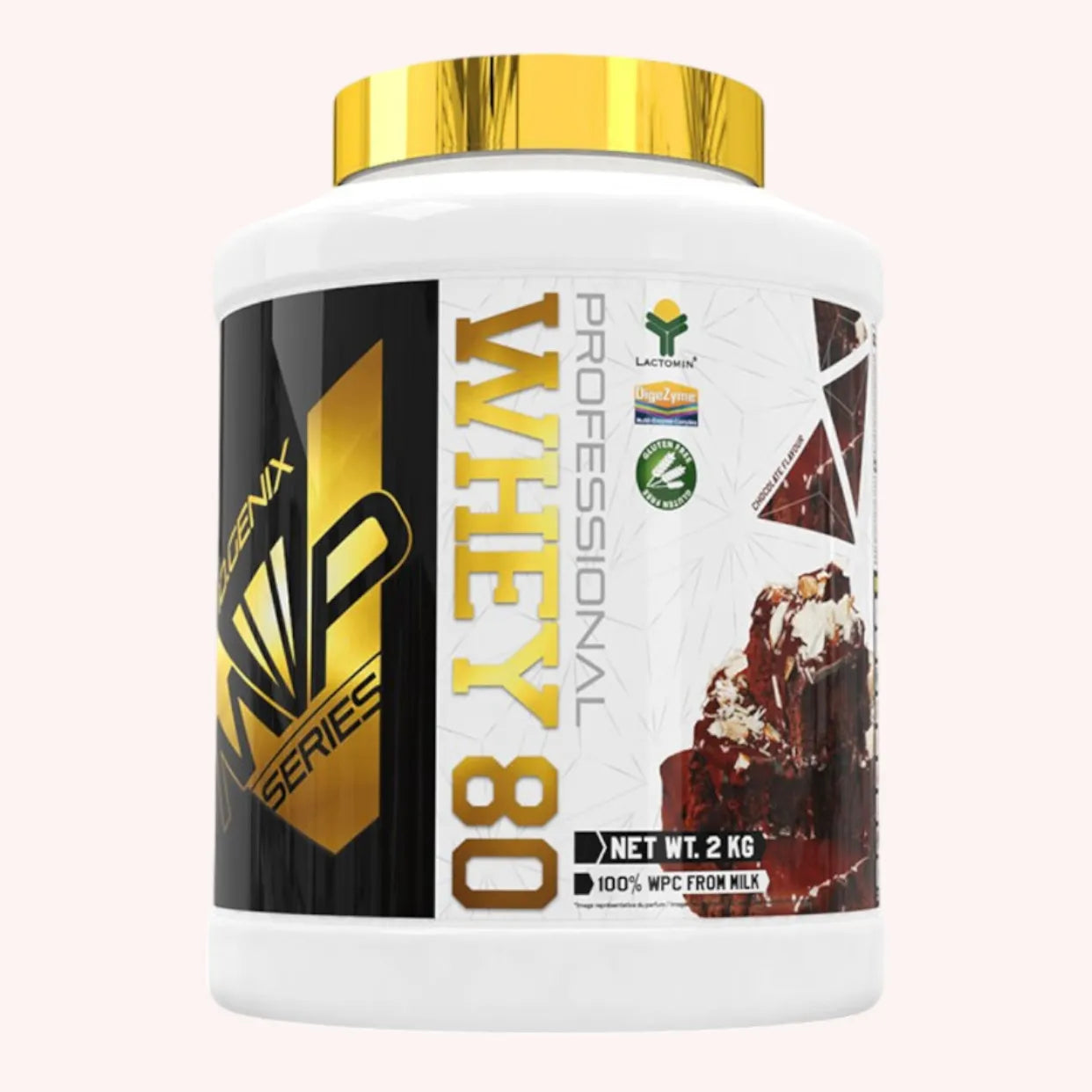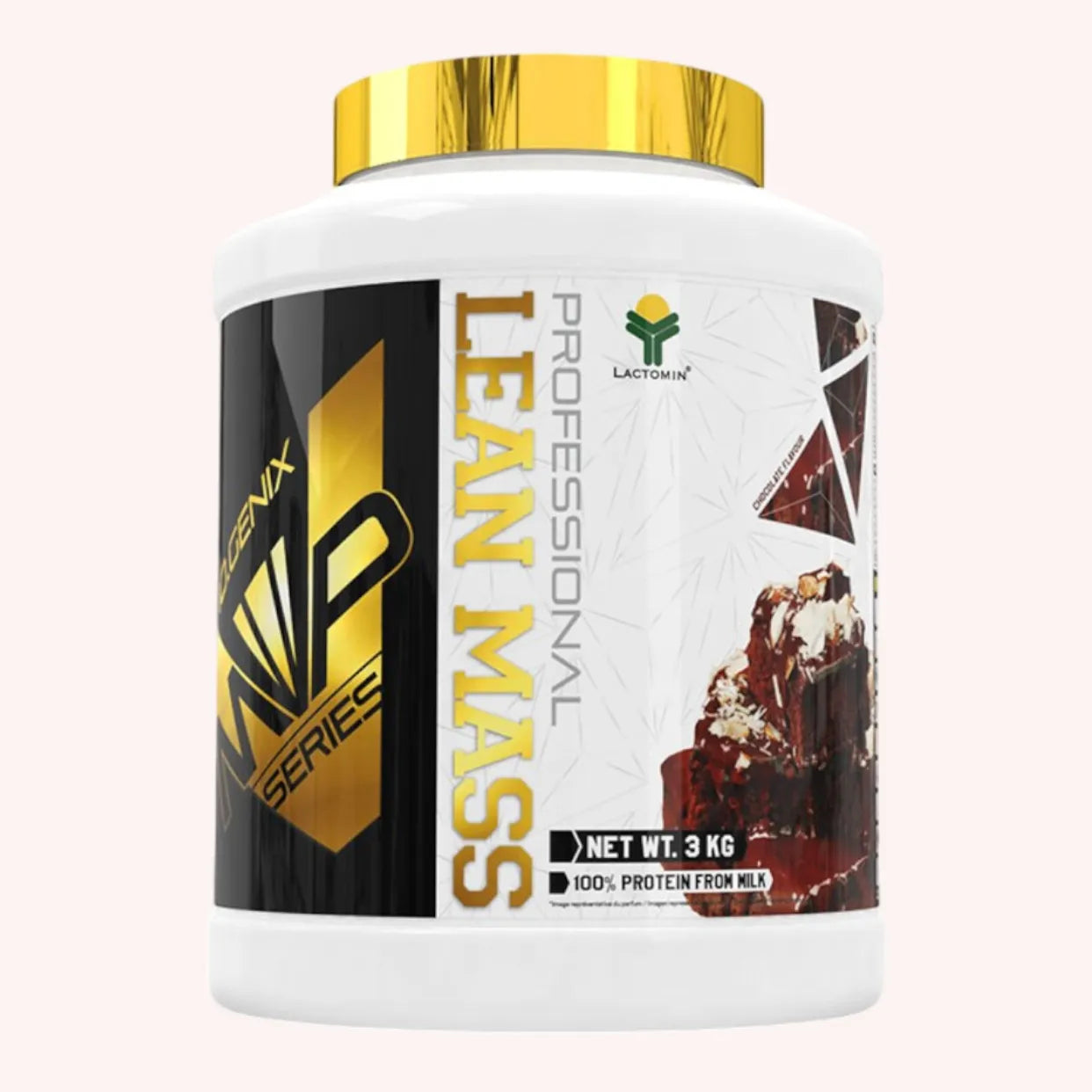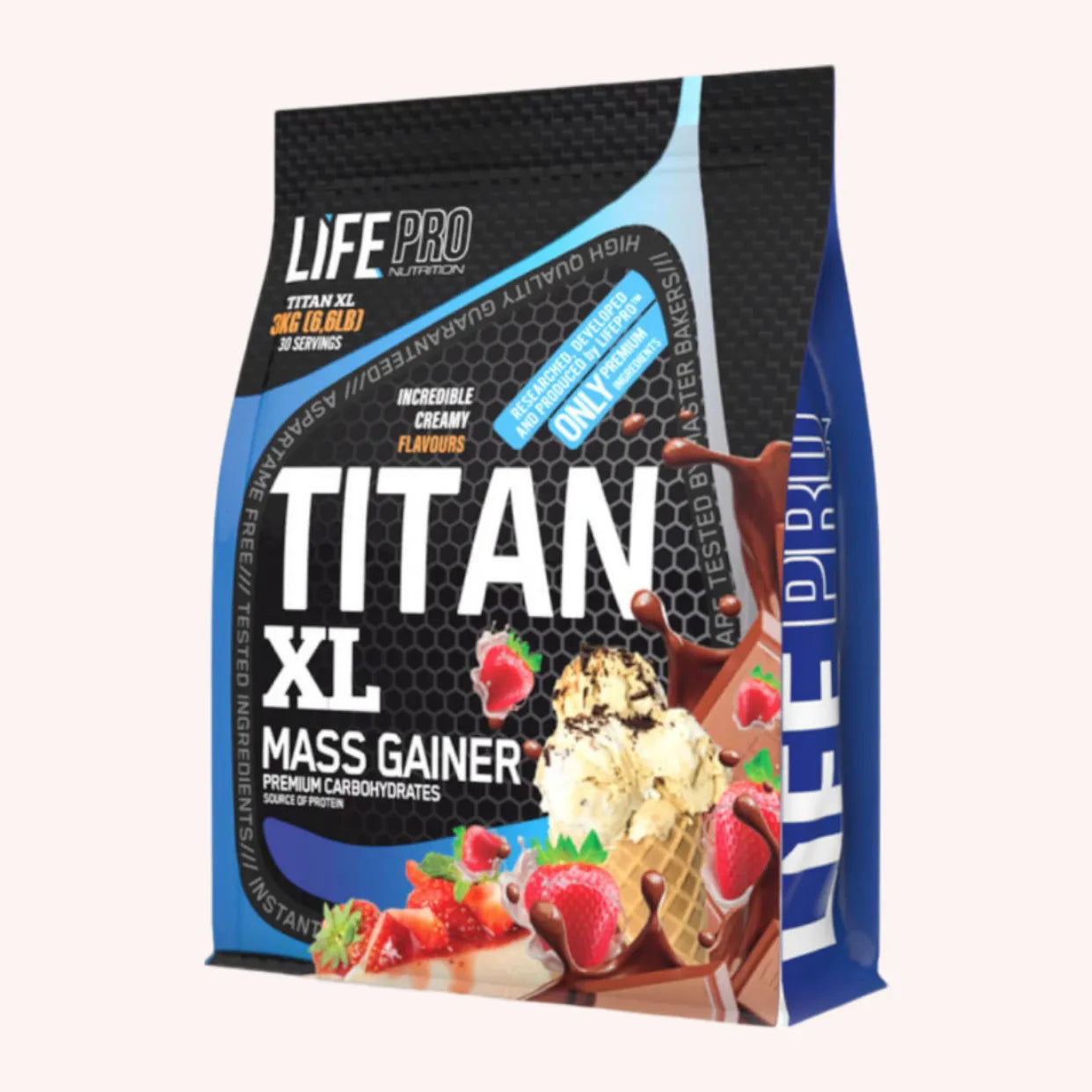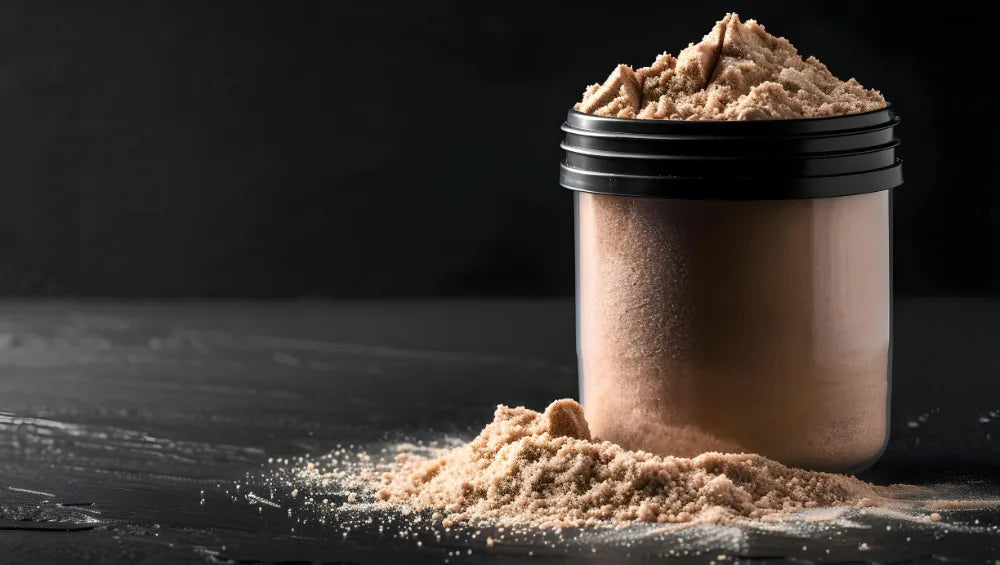Gaining muscle mass isn't simply a matter of increasing your calorie intake. Quite the opposite, it's a demanding challenge that requires a thoughtful strategy, with nutrition playing a central role. Whether you're a seasoned bodybuilder or an athlete determined to take your fitness journey to the next level, gaining muscle without gaining fat requires a careful approach. So, how can you build a diet that truly supports this goal?
Beyond the popular myths that link mass gain to simply increasing calorie intake, the key lies in the quality of the nutrients consumed and their distribution throughout the day. Eating the wrong diet can not only slow your progress but also harm your overall well-being. In this context, understanding your body's specific needs, adjusting your eating habits, and prioritizing quality nutritional sources are essential to transforming your efforts into concrete results.
Here, discover a detailed guide that will give you advice in achieving your goals.
What is mass gain?
Bulking involves consuming more calories than your body expends to stimulate muscle growth . It relies on two key elements: resistance training (heavy lifting, strength training) and a diet rich in the right macronutrients, especially protein.
While excess calorie intake is essential, it's essential that this excess comes from quality foods rich in protein, complex carbohydrates, and healthy fats. This will allow you to maximize muscle gain and limit fat accumulation.
What are the best macronutrients for mass gain?
When you're following a mass-gaining program, nutrition is central to supporting your efforts in the gym. It's therefore important to understand the role of each macronutrient.
Protein: The Basis of Muscle Building
Proteins are the building blocks that build and repair muscle fibers after physical exertion. They provide the essential amino acids for muscle tissue synthesis. During mass gain, it is recommended to consume approximately 1.6 to 2.2 grams of protein per kilogram of body weight per day. The preferred protein sources are:
- Lean meats (chicken, turkey, lean beef).
- Fish (salmon, tuna, mackerel).
- Eggs.
- Dairy products (cottage cheese, Greek yogurt, milk).
- Plant proteins (tofu, legumes, quinoa).
Proteins should be distributed evenly across different meals throughout the day to optimize their assimilation.
Carbohydrates: Energy for Performance
Carbohydrates are the body's primary source of energy, and they are particularly important during mass gain phases, as they promote athletic performance and recovery after exercise. Carbohydrates are stored as glycogen in the muscles and liver, providing rapid energy during intense workouts.
- Recommended Amount: For optimal mass gain, it is recommended to consume between 4 and 6 grams of carbohydrates per kilogram of body weight.
Sources of complex carbohydrates to favor:
- White rice, sweet potatoes, quinoa, oats.
- Starchy vegetables (potatoes, squash).
- Fruits (bananas, apples, berries).
These low glycemic index foods allow for a slow and constant release of energy, thus promoting better long-term performance and avoiding insulin spikes.
Lipids: A key element for health and hormones
Lipids, often underestimated, are essential for mass gain, as they play a key role in the production of anabolic hormones like testosterone. Additionally, the omega-3 fatty acids found in oily fish improve insulin sensitivity, facilitating nutrient absorption into muscles.
Recommended Amount: Fat should make up about 20% to 30% of your total calorie intake .
Sources of healthy fats:
- Vegetable oils (olive, rapeseed, walnut).
- Lawyers.
- Nuts and seeds.
- Oily fish (salmon, sardines).
- Peanut or almond butter (no added sugar).
How should you distribute your meals during your weight gain?
One of the common mistakes when bulking up is concentrating your calorie intake on two or three large meals a day . To avoid hormonal imbalances and optimize nutrient digestion, it's best to split your diet into 5 to 6 meals a day . This helps maintain a steady flow of protein and carbohydrates to your muscles, promoting rapid recovery and optimal protein synthesis.
Example of meal distribution:
- Breakfast: Rich in protein and slow carbohydrates (example: eggs, oatmeal, fruit).
- Morning snack: Protein intake (example: whey protein shake, dried fruit).
- Lunch: Complete balanced meal (example: chicken, brown rice, vegetables).
- Post-workout snack: Mix of protein and fast carbohydrates for rapid recovery (example: banana, protein powder).
- Dinner: Meal rich in protein and healthy fats (example: fish, quinoa, green vegetables).
- Bedtime snack: Slow-digesting protein sources to nourish muscles overnight (example: cottage cheese).
Dietary supplements: A significant boost
While nutrition should remain the foundation of your mass gain program, certain supplements can help you reach your goals faster.
Whey protein
Whey protein is a fast-acting and easily digestible source of protein powder . It's ideal for quick snacks and after workouts when the body needs a quick boost of protein.
Benefits :
- Fast absorption.
- Contains all essential amino acids.
- Promotes muscle recovery and synthesis.
The gainers
Weight gainers are blends of protein, carbohydrates, and sometimes fat designed to increase daily calorie intake . They are recommended for people who have difficulty meeting their calorie needs through solid foods alone.
Benefits :
- Easy increase in calorie intake .
- Convenient for people with fast metabolism.
Creatine
Creatine is one of the most researched and effective supplements for improving strength, power, and muscle recovery. It allows for more energy to be stored in the muscles in the form of phosphocreatine, thus improving performance during intense workouts.
Benefits :
- Increased strength.
- Better recovery.
- Promotes lean muscle gain.
Our best tips for optimizing your diet when gaining mass
- Gradually increase calories: If you increase your calorie intake too quickly, you risk storing more fat than muscle. A moderate calorie surplus of 200 to 300 kcal per day is recommended to limit fat gain while promoting muscle growth .
- Vary your nutrient sources: Don't limit yourself to just a handful of foods. Vary your sources of protein, carbohydrates, and fats to get all the necessary micronutrients and avoid monotony.
- Hydrate properly: Water plays an essential role in transporting nutrients and eliminating toxins. Make sure to drink at least 2 to 3 liters of water per day, especially during weight gain phases.
- Consider your body type: Depending on whether you're an ectomorph, mesomorph, or endomorph, your nutritional needs may vary. Ectomorphs, for example, will need to consume more calories to compensate for their fast metabolism, while endomorphs will need to be careful about fat accumulation.
- Avoid empty calories: Processed foods high in sugars and saturated fats do nothing good for your body and can actually promote fat gain. Choose natural, unprocessed foods instead.
What diet program should I follow to gain mass?
Here are two examples of menus adapted to a mass gain of 3000 to 3500 kcal per day .
Menu 1
- Breakfast: Omelette with 3 whole eggs, a portion of oat flakes (about 60g) accompanied by red fruits (raspberries, blueberries), a banana.
Why this choice? Eggs provide high-quality protein, essential for muscle rebuilding . Oatmeal is a slow-release energy source, ideal for starting the day and maintaining stable energy levels.
- Mid-morning snack: 30g of whey protein mixed with water or almond milk, accompanied by a handful of almonds (about 25g).
Why this choice? Whey is quickly absorbed by the body and helps maintain a steady supply of amino acids. Almonds are an excellent source of healthy fats and fiber, supporting energy while promoting satiety.
- Lunch: Grilled chicken (about 150g), basmati rice (100g cooked), broccoli sautéed in olive oil.
Why this choice? Chicken is a source of lean protein, essential for muscle repair. Basmati rice provides complex carbohydrates, essential for restoring glycogen stores, while broccoli provides fiber and important micronutrients like vitamin C and potassium.
Post-workout snack: 1 protein shake (whey), 1 apple.
Why this choice? After a workout, it's crucial to quickly provide protein to repair stressed muscles. Apples, with their simple carbohydrates, help quickly restore muscle glycogen levels.
- Dinner: Baked salmon (about 150g), roasted sweet potato (150g), sautéed spinach.
Why this choice? Salmon is rich in omega-3 fatty acids, which play a role in reducing post-workout muscle inflammation. Sweet potatoes are an excellent source of complex carbohydrates, and spinach provides essential vitamins and minerals for overall health.
- Bedtime snack: 200g of cottage cheese with a spoonful of peanut butter.
Why this choice? Cottage cheese is rich in casein, a slow-digesting protein that maintains a steady supply of amino acids throughout the night, promoting muscle repair and growth. Peanut butter provides healthy fats, which also slow digestion and promote satiety.
Menu 2
- Breakfast: Plain Greek yogurt (200g) mixed with muesli (about 60g), one orange.
Why this choice? Greek yogurt is a concentrated source of protein, while muesli provides complex carbohydrates and fiber, ideal for supporting energy. The orange provides a dose of vitamin C, which aids recovery and supports the immune system.
- Mid-morning snack: Homemade protein bar (oats, protein powder, peanut butter).
Why this choice? Homemade protein bars allow you to control the ingredients while providing a good combination of protein, carbohydrates, and fats to maintain energy levels throughout the day.
Lunch: Lean beef steak (150g), quinoa (100g cooked), green beans.
Why this choice? Lean beef is rich in protein and creatine, a natural compound that helps increase muscle strength. Quinoa, in addition to being a source of carbohydrates, also provides complete protein, making it an excellent choice for a balanced lunch.
- Post-workout snack: Homemade protein smoothie (almond milk, whey, fruits like banana and berries).
Why this choice ? This smoothie is perfect for quickly replenishing energy reserves after a workout thanks to its blend of fast-acting proteins and simple carbohydrates from fruit. Almond milk is a light alternative to traditional milk, while still being rich in nutrients.
- Dinner: Grilled turkey (about 150g), potatoes (200g cooked), green salad with a light vinaigrette.
Why this choice? Turkey is a lean meat, rich in protein and low in fat. The potatoes are an excellent source of complex carbohydrates, and the green salad provides fiber and essential vitamins without weighing down the meal.
- Snack before bed: 200g of cottage cheese with some nuts.
Why this choice? Just like in the first menu, cottage cheese is ideal before bed thanks to its casein content. Nuts, rich in healthy fats, slow digestion and maintain a steady release of energy throughout the night.
Bulking up is a demanding process that requires discipline in both diet and exercise. Adjusting your calorie intake to suit your needs, timing your meals wisely, and incorporating supplements can help you reach your goals faster. Remember that everyone is unique, and it's important to tailor your plan based on your progress and individual needs.
With patience and a methodical approach, you will be able to develop quality muscle mass while limiting fat gain.
Sources:
- Garcia A, Barbas C. Gas chromatography-mass spectrometry (GC-MS)-based metabolomics. Methods Mol Biol. 2011;708:191-204. doi:10.1007/978-1-61737-985-7_11. PMID: 21207291.: https://link.springer.com/referenceworkentry/10.1007/978-3-319-39312-4_159
- Glutamine Metabolism in Cancer Stem Cells: A Complex Liaison in the Tumor Microenvironment Pacifico F, Leonardi A, Crescenzi E. Int J Mol Sci. 2023 Jan 25;24(3):2337. DOI: 10.3390/ijms24032337 PMID: 36768660: https://www.mdpi.com/1422-0067/24/3/2337
- Wu TR, Lin CS, Chang CJ, Lin TL, Martel J, Ko YF, Ojcius DM, Lu CC, Young JD, Lai HC. Gut commensal Parabacteroides goldsteinii plays a predominant role in the anti-obesity effects of polysaccharides isolated from Hirsutella sinensis. Gut. 2019 Feb;68(2):248-262. doi:10.1136/gutjnl-2017-315458. PMID: 30007918 .: https://pubmed.ncbi.nlm.nih.gov/30007918/
- Soo EC, Hui JP. Metabolomics in glycomics. Methods Mol Biol. 2010;600:175-86. doi:10.1007/978-1-60761-454-8_12. PMID: 19882128 .: https://pubmed.ncbi.nlm.nih.gov/19882128/
- Silverstein SC, Christman JK, Acs G. The reovirus replicative cycle. Annu Rev Biochem. 1976;45:375-408. doi: 10.1146/annurev.bi.45.070176.002111. PMID: 786154 .: https://pubmed.ncbi.nlm.nih.gov/786154/
- Teomim D, Nyska A, Domb AJ. Ricinoleic acid-based biopolymers. J Biomed Mater Res. 1999 Jun 5;45(3):258-67. doi:10.1002/(sici)1097-4636(19990605)45:3<258::aid-jbm14>3.0.co;2-w. PMID: 10397984 .: https://pubmed.ncbi.nlm.nih.gov/10397984/
- Toussirot E, Marotte H, Mulleman D, et al. Increased high molecular weight adiponectin and lean mass during tocilizumab treatment in patients with rheumatoid arthritis: a 12-month multicenter study. Arthritis Res Ther. 2020 Sep 29;22(1):224. doi:10.1186/s13075-020-02297-7. PMID: 32993784 .: https://pubmed.ncbi.nlm.nih.gov/32993784/
- Degano I, Mattonai M, Sabatini F, Colombini MP. A Mass Spectrometric Study on Tannin Degradation within Dyed Woolen Yarns. Molecules. 2019 Jun 22;24(12):2318. doi:10.3390/molecules24122318. PMID: 31234558 .: https://pubmed.ncbi.nlm.nih.gov/31234558/
- Labow BI, Souba WW. Glutamine. World J Surg . 2000 Dec;24(12):1503-13. doi:10.1007/s002680010269. PMID: 11193715 .: https://pubmed.ncbi.nlm.nih.gov/11193715/




